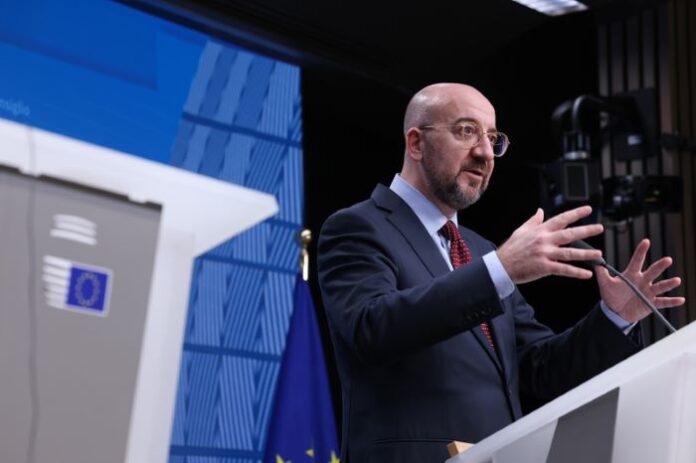On Thursday, leaders of the 27 European Union countries unanimously agreed to extend 50 billion euros in new aid to Ukraine to support its war-ravaged economy. European Council President Charles Michel said the agreement “locks in steadfast, long-term, predictable funding for Ukraine”. It demonstrates the EU’s determination.
“We have a deal. Unity,” said European Council President Charles Michel in a post on X. “All 27 leaders agreed on an additional 50-billion-euro support package for Ukraine within the EU budget.”
The aid package, consisting of two-thirds of loans and one-third of grants, will support the Ukrainian economy in paying for rebuilding efforts and preparing for eventual EU membership.
It’s worth noting that the EU has a separate plan to fund Kyiv’s defence needs, including arms and ammunition.
Two years since Russia invaded Ukraine, and the Ukrainian economy is still struggling. The country lost a third of its economic output in the first few months after the 2022 invasion due to wartime destruction and occupation by Russia.
As a result, inflation has skyrocketed to 26%, and the central bank has had to print money to cover budget gaps. Unfortunately, Ukraine’s tax revenue is almost entirely consumed by the ongoing war, leaving a significant deficit for other crucial expenses like pensions and salaries for state employees.
EU Council President said this move would also send “a signal to the American taxpayers”. This signal could aid the Biden administration’s push to secure a Ukraine support package through Congress.
Hungary’s resistance
The unanimous agreement was possible because Hungary’s prime minister, Viktor Orbán, an ally of Vladimir Putin, changed his position. Hungary has strongly protested against the financial aid proposed in December and prevented its approval. Orbán has threatened to repeat this action in recent days. His government has disagreed with the European Commission over various issues, including the decline in human rights, the rule of law, media and academic freedom. Consequently, some of Hungary’s funding has been suspended. Orbán is unhappy with the European Commission’s decision to freeze his government’s access to billions of euros in joint funding. As a result, Hungary has vetoed statements on several issues at the EU. Orbán also blocked high-level meetings with Ukraine until recently, which caused problems for NATO. Moreover, Budapest is holding Sweden’s application to join the trans-Atlantic military alliance.
In December, 26 EU leaders agreed that the 50 billion package would run from 2024 to 2027. They also agreed to make Ukraine a candidate for EU membership, which Orbán reluctantly accepted. However, the aid package was part of a review of the EU’s ongoing seven-year budget, which requires unanimous approval.
EU leaders pressured Hungary to lift its block on the Ukraine aid summit. They wanted Prime Minister Orbán to choose a side in the conflict between Russia and Ukraine.

[Multilateral meeting with Hungarian Prime Minister, Copyright: European Union]
Some leaders accused Orbán of playing political games and blackmailing. They were concerned that public support for the Ukraine aid was waning, which could threaten Europe’s security. Diplomats worked late into the night to reach an agreement, and the breakthrough happened at a small-group meeting on Thursday. Orbán claimed victory, saying Hungary’s funds won’t go to Ukraine. However, in exchange for Hungary’s approval, the EU didn’t promise to release any of the frozen EU funds due to concerns about human rights and the rule of law in the country.
Ukrainian President Volodymyr Zelenskyy has welcomed the agreement, stating that the aid will enhance his country’s long-term economic and financial stability as it approaches its third year of war.

